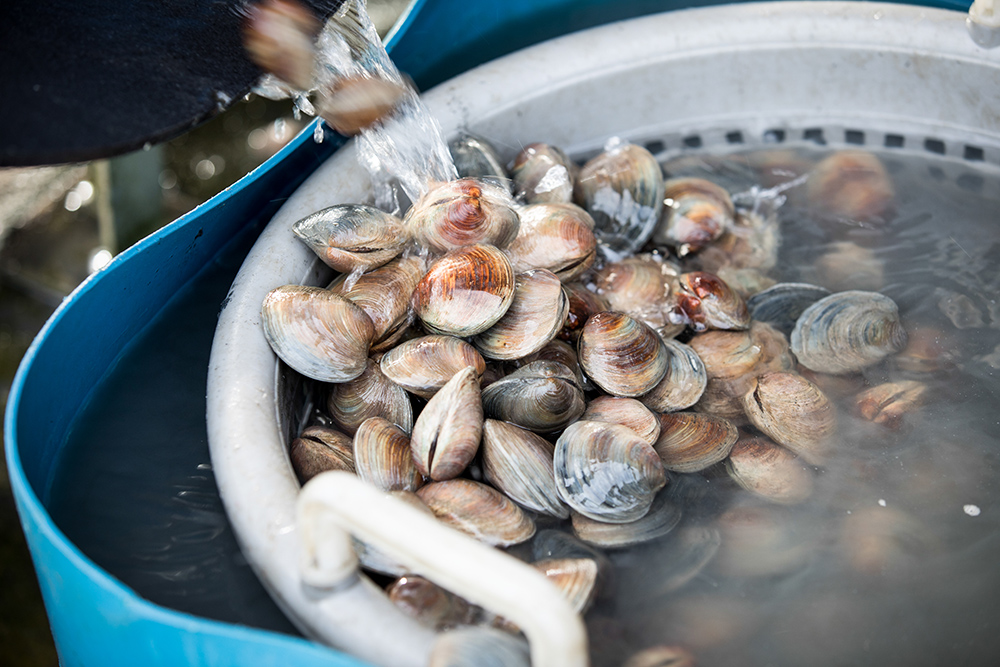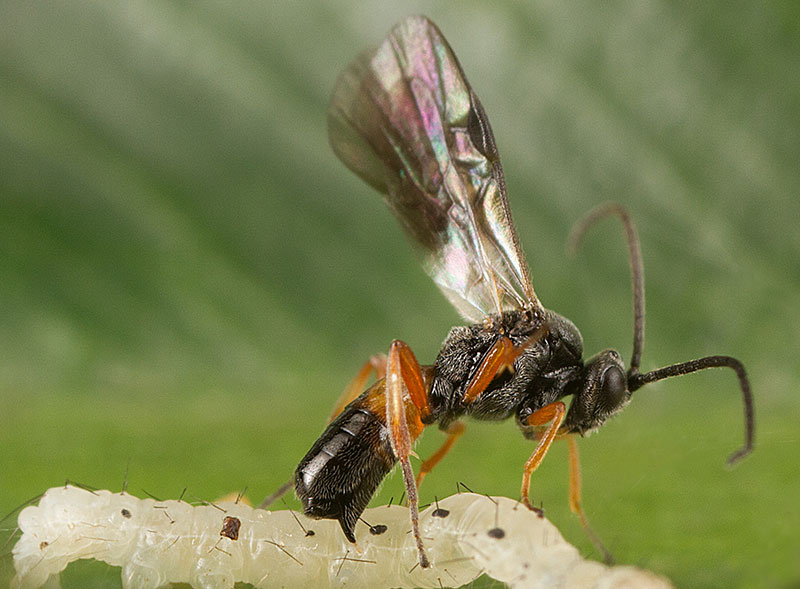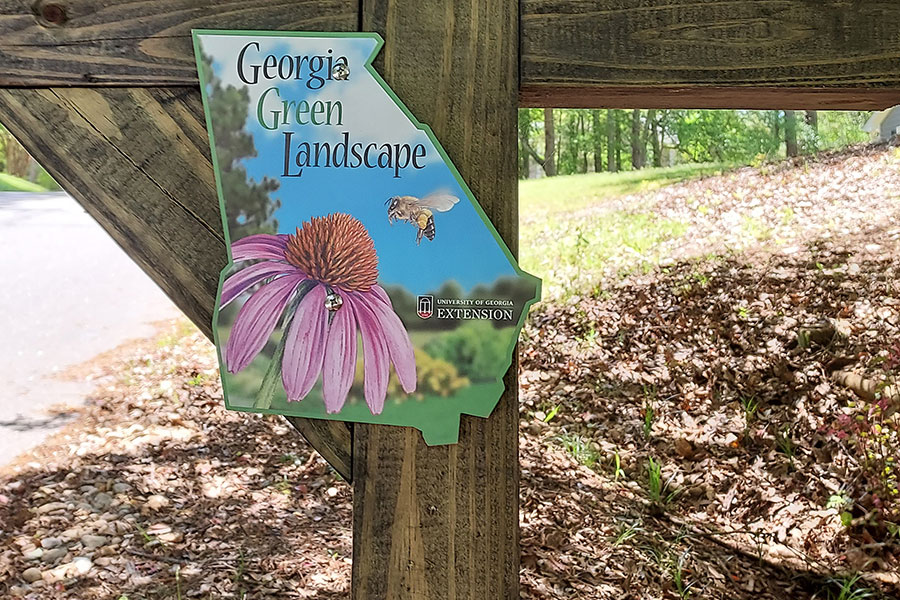
Three years after its debut, the Georgia Green Landscape Stewards program is expanding throughout the state with the assistance of University of Georgia Cooperative Extension Master Gardener volunteers.
Launched in 2021 by Camden County Agriculture and Natural Resources agent Jessica Warren and Martin Wunderly, area water agent for UGA Extension’s Northeast District, the program provides fact-based information to help property owners implement sustainable practices in their landscapes. Using a points-based system, the program has certified more than 200 private properties, public spaces and pollinator gardens in 47 counties as Georgia Green Landscapes, with new applications coming in every month.
“County offices give out materials on the program and, even if they are not officially utilizing the program, they are referring garden clubs, plant societies and community groups to the program for speaking topics or to use program materials in club meetings or classes,” said Warren, who also travels around the state to teach classes or give talks on the program.
Accessible resources
Because the full curriculum is available on the program website — complete with educational videos and other self-guided resources to educate property owners on implementing sustainable green practices in their landscapes — Master Gardener volunteers have been invaluable in sharing the program more broadly in their respective areas, she added.
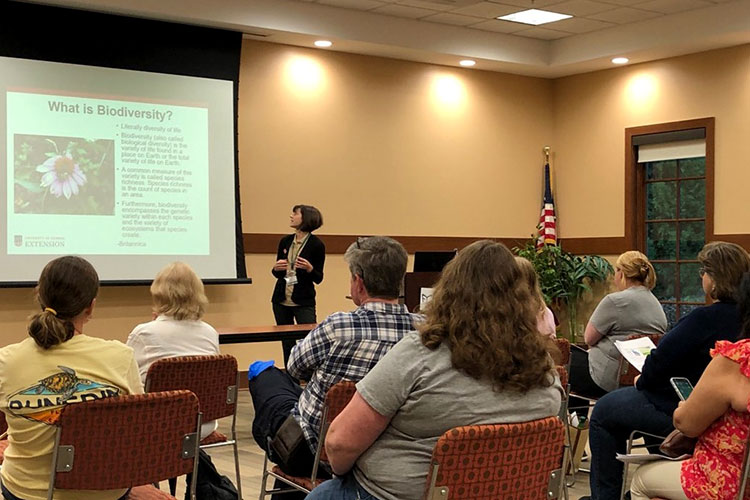
Current video lessons feature Warren and Wunderly presenting topics including protecting natural resources, increasing plant and animal biodiversity, conserving soil and water, providing wildlife and pollinator habitat, and improving public and environmental health. Warren hopes to be able to create outdoor instructional videos to demonstrate practices taught in the program in a backyard setting.
Greening urban landscapes
Interest in the program has been strong in Georgia’s metropolitan areas — Cobb, Gwinnett, Fulton, Forsyth, Bartow and Paulding counties in metro Atlanta as well as around Savanah, Macon and Columbus — especially when the program is presented to the public through classes.
“These certifications are happening mostly in and around cities, but that is probably where this program can make the biggest impact because habitats have been so altered with urban sprawl,” Wunderly said. “It’s time to start bringing landscapes and spaces back to nature, and more people doing this in metro areas could make a bigger impact on air and water quality.”
Heather Kolich, Agriculture and Natural Resources agent for Forsyth County, coordinated Master Gardener volunteers in her county to offer the program through a five-week certification series in partnership with the Forsyth County Public Libraries.
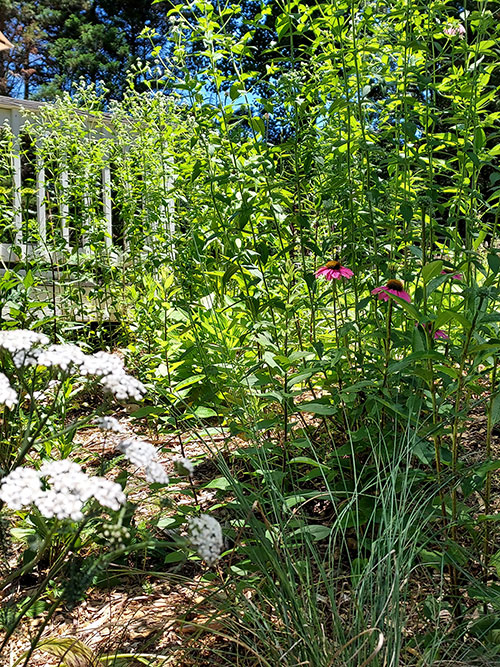
“We’ve used the Georgia Green Landscape Stewards curriculum as the basis for building a speakers bureau and letting some of our volunteers help us reach additional clients beyond what we could do with the regular staff,” said Kolich, adding that Master Gardener volunteers, who are familiar with much of the program’s subject matter, were trained on presenting the program to the public.
Educational impact
The five-session sustainable landscapes series has been held four times at four different libraries in Forsyth County in spring and fall of 2022 and 2023. Kolich said the classes aligned with the needs assessment for the county, which identified sustainable landscaping, home food gardening and pollinators as top priorities. The free sessions were open to the public, attracting 354 participants.
Forsyth County now has more certified Georgia Green Landscape Stewards than any other Georgia county. Camden County is in second place for certifications.
“We know that homeowners control a lot of acreage, so their decisions about what they do in their landscapes can have a tremendous impact for good,” Kolich added. “Hopefully one of the outcomes is that the people who go through this program will talk with their neighbors about it and get more people adopting more environmentally friendly practices. It lowers the impact on the environment and lessens the burden of landscape care on them.”
Full information on the program is available at site.extension.uga.edu/georgiagreen. For assistance with the program in your area, contact your local UGA Extension office by visiting extension.uga.edu/county-offices.




